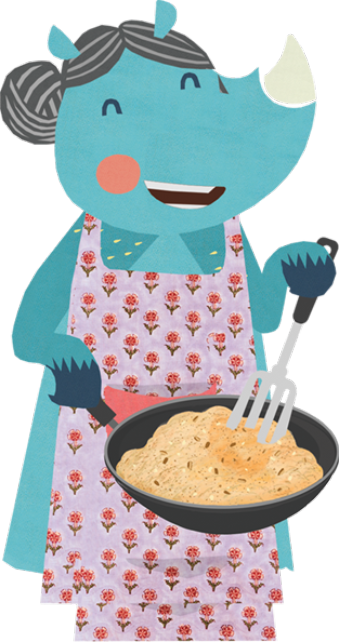 16th
Nov 2023
16th
Nov 2023
 4 min
4 min
As a parent, it can be overwhelming to know when and how to start your baby’s solid food journey. The World Health Organization (WHO) and the Indian Academy of Pediatrics suggest waiting until your little one shows signs of readiness, typically at around 6 months old.
Here are some tips to help you successfully introduce solid foods to your baby:
 Create a relaxed atmosphere: Encourage happy, calm mealtimes with your baby, as this can help build positive associations with food. Remember, this is a bonding opportunity with your little one!
Focus on iron-rich foods: Breast milk alone may not provide enough iron for your baby's needs at 6 months old. Offering foods that are rich in iron can ensure that babies get the necessary nutrition.
Create a relaxed atmosphere: Encourage happy, calm mealtimes with your baby, as this can help build positive associations with food. Remember, this is a bonding opportunity with your little one!
Focus on iron-rich foods: Breast milk alone may not provide enough iron for your baby's needs at 6 months old. Offering foods that are rich in iron can ensure that babies get the necessary nutrition.
Explore textures: Let your baby touch and explore different textures of food with their fingers and mouth. This helps with brain development and prevents picky eating habits in the future.
 Offer variety: Avoid repeatedly offering the same foods to your baby. Offer a variety of flavors, tastes, and textures to encourage a love of diverse foods.
Complement, don't replace breast/formula milk: Solid foods should be given in addition to, not in place of, breast milk or formula. We recommend feeding solid meals after 45 minutes to an hour after the baby has breast milk or formula.
Offer variety: Avoid repeatedly offering the same foods to your baby. Offer a variety of flavors, tastes, and textures to encourage a love of diverse foods.
Complement, don't replace breast/formula milk: Solid foods should be given in addition to, not in place of, breast milk or formula. We recommend feeding solid meals after 45 minutes to an hour after the baby has breast milk or formula.
 Don't worry about quantity: There are no specific guidelines on how much food your baby should eat. Let your baby decide the quantity they want to eat.
Give solids earlier in the day: Offer solid foods in the first half of the day so you have time to observe your baby for any potential allergic reactions or intolerances.
Don't worry about quantity: There are no specific guidelines on how much food your baby should eat. Let your baby decide the quantity they want to eat.
Give solids earlier in the day: Offer solid foods in the first half of the day so you have time to observe your baby for any potential allergic reactions or intolerances.
 Keep it simple:
Keep it simple:
Introduce your baby to the foods your family typically eats at home, so that they become familiar with the flavors and textures of regular meals.


Stay tuned for the next 2 days as we share a list of baby-related items parents should buy and a list of items they absolutely should not waste money on! Real-life moms also share their experiences of their best and worst baby-related purchases.
We will be delving more in detail into these topics as we go forward. Also remember, every baby is different, so don’t worry if your little one isn't ready to start solids at the same time as others.
While you watch out for their signs of readiness, remember to enjoy the new moments together! Next week, let’s look at why a good sitting position is key to a baby’s first experiences of eating solids. We also explore which first foods are recommended and which ones are avoided for the time being.


 Did You Know
Did You Know






















